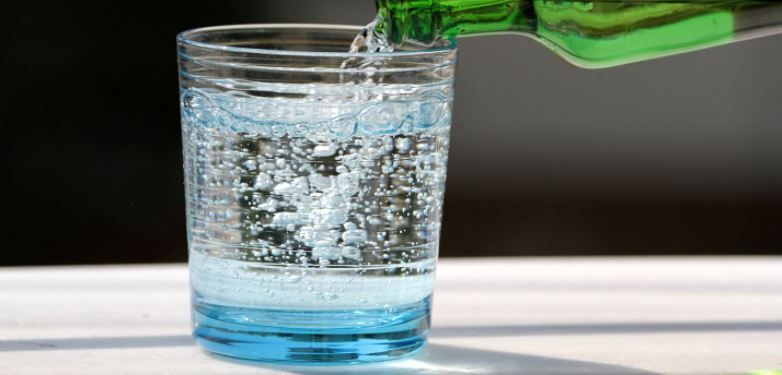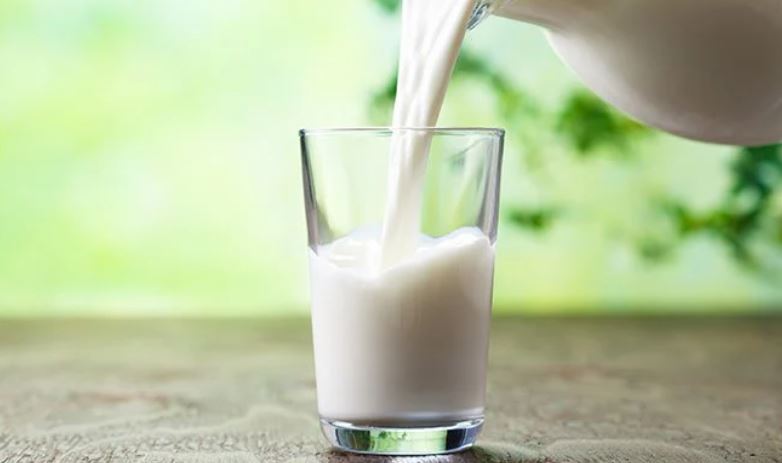It’s all too easy to get wrapped up in the ins and outs of your pre-workout meal selections and forget to keep track of what you’re drinking. However, as you’ll discover, what you drink may drastically affect your exercise. Bloating and cramps to unexpected energy crashes —or worse— can all be side consequences of your drinking habits.
So, if you really want to make your exercises both fun and productive, keep an eye on what you drink. To keep your exercise full of energy and cramp-free, avoid these 12 worst things to drink before working out. And besides, you don’t want to waste half your run looking for a restroom, do you?
Contents
Smoothies and Fatty Shakes
Nuts, nut butters, and seeds are delicious additions to any drink or smoothie, but not just before a workout. The fat passes slowly throughout the GI system, causing stomach issues such as cramps when exercising. Avoid fat-filled drinks and smoothies a couple of hours before you exercise to keep your stomach happy. A fatty smoothie, instead, would be a wonderful post-workout alternative. It may help to reduce inflammation, and it’s a good addition to any healthy diet.
Pulpy Juice
Juice-containing pulp is the route to go in general. After all, the pulp contains a substantial amount of fiber, which, according to the Mayo Clinic, may help you stay at a healthy weight while lowering the risk of heart disease and diabetes. Juice with pulp, on the other hand, is a bad pre-workout alternative due to its high fiber level.
When ingested before an exercise, fiber is hard to digest, which might induce cramps, constipation, or diarrhea. Fiber also restricts the number of carbohydrates and sugar accessible to your muscles throughout your exercise since it is sluggish to absorb. So store the drink for another time and don’t consume it an hour hours before doing out. Trust us when we say that your stomach will appreciate you!
Alcohol
Alcohol dehydrates you while simultaneously limiting the quantity of oxygen supply that reaches your muscles, which is a lousy combination for your exercise. When your muscles don’t receive enough oxygenated blood, they don’t have the energy they need to operate, and your workout performance suffers. Not to mention, drinking affects balance and lowers response time, increasing your chance of an accident or injury. Drinks should be saved for a post-workout treat.
Sparkling Water
Whenever you start the HIIT exercise, cracking open that can of sugary LaCroix isn’t the best idea. While carbonated flavored water tastes fantastic, the bubbles may induce bloating and gas, making you feel sluggish and unpleasant during a workout. Stick to plain water for pre-workout hydration instead of fizzy water.
Sugar-Free Drinks
Sugar alcohols, which are low-calorie sugar replacements, provide sugar-free smoothies and beverages with their sweet taste. Sugar alcohols are manufactured from genuine sugar, but their chemical structure is modified so they aren’t ingested by the intestines. This makes them tough to digest, resulting in a lot of gas, bloating, cramps, and diarrhea, which is the last factor you want while you’re attempting to work out.
Drinks branded “light,” “diet,” or “diabetic-friendly” should be avoided. If you notice any of the common sugar alcohols such as maltitol, sorbitol, xylitol, mannitol, or erythritol on the ingredient list, pass.
Juice in a Bottle
Bottled juices, unlike fresh-squeezed juice, frequently contain less than 10% genuine fruit juice and have minimal nutritional value. Instead, they load you full of large amounts of sugar, which might leave you with stomach pain and force you to sit out. Furthermore, although juice drinks and juice boxes may provide an initial surge of energy, the sugar high will quickly fade as you go through your exercise. Instead, for a natural taste, squeeze a fresh orange or lemon into the water bottle. Want more tips on how to eat less sugar?
Soda
Soda goes well with burgers but not with exercise. Because soda is made mostly of refined sugar, it lacks the variety of carbohydrate sources that the muscles need for activity. You will be better off drinking a sports drink, which usually has a wider range of carbs (there are some drawbacks to that, too).
Coffee Drinks with Different Flavors
Keep the Starbucks dose for your cheat day or a post-workout reward. If you drink them before a workout, flavored coffee beverages generally include fat and sugar, putting you at risk of stomach troubles. Furthermore, obesity might make you slower, which is not something during your exercise!
Milk
Yes, milk has a good balance of fat, protein, and carbohydrates. It takes a very long time to digest, so it’s best saved for a post-workout smoothie. If you’re going to make a pre-workout shake or smoothies, use coconut or almond milk and whey or a plant-based protein powder.
Sports Beverages
Gatorade seems like a no-brainer before (or during) the exercise. Sports drinks, after all, are built to maintain hydration levels and ensure that the muscles are ready to work. The problem is that many sports drinks are heavy in sugar, which may cause digestive problems such as cramps and diarrhea if you are sensitive to such things or consume too much in a small period of time.
Pre-workout sports drinks may still be used; however, we advise reducing the portion amount. Do half a bottle of Gatorade and afterward drink water instead of a whole bottle. According to a study published in the Journal of Physiology, you may get the most out of the sports drink by swishing it about in the mouth and spitting it out. If you do decide to swish, keep in mind that you’ll still have to remain hydrated by drinking lots of water.
Coffee
Caffeine before an exercise is generally good, according to the study. According to a 2014 research published in the Journal of Applied Physiology, caffeine might make your exercise seem simpler and more pleasurable. Some individuals, however, are hypersensitive to caffeine’s effects and discover that it leads them to urinate throughout their exercise. If you’re sensitive to caffeine or consume too much of it, you can have headaches or an upset stomach. If you opt to consume coffee before a workout, pay close attention to how the body responds, particularly if you aren’t a coffee drinker. According to the Mayo Clinic, caffeine use should be limited to 400 mg per day, or about four cups of coffee.
Energizing Beverages
Energy drinks (think Red Bull or Monster) may provide a short-term boost, according to Palumbo. However, because of the caffeine concentration, you may have cramps, headaches, and dehydration in the long run. Furthermore, some energy drinks include guarana, a caffeine-rich substance derived from a plant that has been demonstrated to be more potent than coffee.
So, the next time you exercise, just make sure to avoid these worst things to drink before working out.










